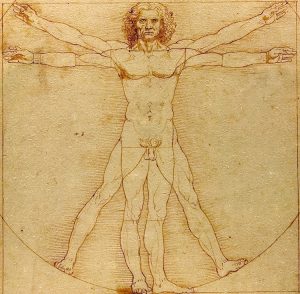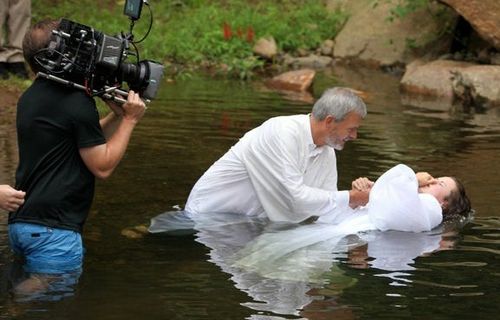The Nature of Man
This article is divided into four subsections:
- Precis of the mainstream Christian Position.

- Failings of these teachings.
- Precis of the True Bible Teaching Position.
- Link to Wrested Scriptures Page.
The Wrested Scriptures Page lists passages commonly used to defend the erroneous views, and outlines the correct understanding of these passages.
In referring to ‘Mainstream Christianity’, we speak of the principal Christian groups, such as Catholics, Baptists, Evangelicals, Pentecostals, etc.
Please excuse the directness of the sections below; due to the nature of the media, we felt it was best.
- Precis of the mainstream Christian Position.
Mainstream Christian Teaching
With regards to the nature of humankind, almost all of Christianity is united in affirming that within every person lies a portion that is inherently immortal. The most frequent take on this is that we have an immortal soul that upon death of the flesh does not die, but rather goes somewhere else. Variations abound.
- Failings of these teachings.
Inherent Flaws in Mainstream teaching
- The evidence of our eyes denies that upon death we go somewhere else. When we see someone die, no matter how nice it is to think that a part of them remains alive, the empirical evidence points to the fact that they are totally dead.
- To bear out the first point, God said to Adam in clear and concise terms that upon death he would return to the ground: “In the sweat of your face you shall eat bread till you return to the ground, for out of it you were taken; you are dust, and to dust you shall return“. (Gn. 3:19) Humans are made out of two things: inert materials, and the spirit of God. The inert material (water, minerals, other elements and compounds) is not unique to us or in any way special, and the life giving spirit (or breath) of God simply returns to Him when we die (Eccl. 12:7).
- There is no Biblical evidence that the spirit of life possessed by humans is special in any way. Quite the contrary, we are living beings in the same way all breathing, oxidizing creatures are living beings. The vocabulary of Genesis and the entire Bible bears this out.
- Ecclesiastes 3:19 – For the fate of the sons of men and fate of beast is the same; as one dies, so dies the other. They all have the same breath, and man has no advantage over the beasts…
- Ecclesiastes 9:10 – Whatever your hand finds to do, do it with all your might; for there is no work or thought of knowledge or wisdom in Sheol [the grave], to which you are going.
- Psalms 146: 3-4 – Put not your trust in princes, in a son of man, in whom there is no help. When his breath departs, he returns to his earth; on that very day his plans perish. Notice here that it doesn’t say that the body returns to earth: ‘he returns to his earth’. The person returns to the soil, not just a part, or exterior shell as is taught.
- 2:7 – then the Lord God formed man of the dust from the ground and breathed into his nostrils the breath of life; and man became a living being. Compare with 1:20, 21 and 24, where all the other ‘living beings’ are created. Note that the Hebrew in all these verses is ‘nefesh‘, which in many cases is translated ‘soul’. So, animals have souls just like we do.
- In the Bible, the word ‘soul’ simply means ‘being’ and can refer to animals as much as humans. The phrase ‘immortal soul’ is entirely absent from scripture, and in fact, there are many passages that quite explicitly say that the soul [i.e. the being or person] dies.
- Ezekiel 18:4, 20 – …the soul that sins shall die. [In this passage, soul means simply ‘person’.]
- Psalms 33:18-19 – Behold, the eye of the Lord is on those who fear him, on those who hope in his steadfast love, that he may deliver their soul from death, and keep them alive in famine. Note here that the death God saves the soul from is famine, not anything spiritual or otherworldly. Again, soul simply means person.
- And the clincher, if you have access to a concordance, is to look up the usage in the original Hebrew. The word soul has no salient supernatural use. It is applied to people, animals and even internal organs.
- Biblically, the hope of humanity lies in the resurrection. It makes no sense to say that a being that never really dies is resurrected – these are mutually exclusive pathways. Resurrection is our only hope, as Paul says in such memorable terms: “If the dead are not raised, let us eat and drink, for tomorrow we die” (I Cor. 15:32). There is no other hope.
- Precis of the True Bible Teaching Position.
What is True Bible Teaching
We believe that man is created out of the dust of the earth. By the dust of the earth, we understand the elements and compounds that make up all things. This body is given life, or breath, by God. Upon death, our breath leaves our body, our bodies return to the soil. Our only hope lies in the resurrection from the dead when Christ returns to this earth. In the meantime, the dead lie in the earth in the sleep of death, alive only in the memory of God, until Jesus comes.
- Link to Wrested Scriptures Page, learn more here about the True Nature of Man as revealed by True Bible Teaching
![]()





 extremely dangerous and the firefighters had to apply their skills with great care.
extremely dangerous and the firefighters had to apply their skills with great care. “He who believes and is baptized shall be saved” (Mark 16:16).
“He who believes and is baptized shall be saved” (Mark 16:16).